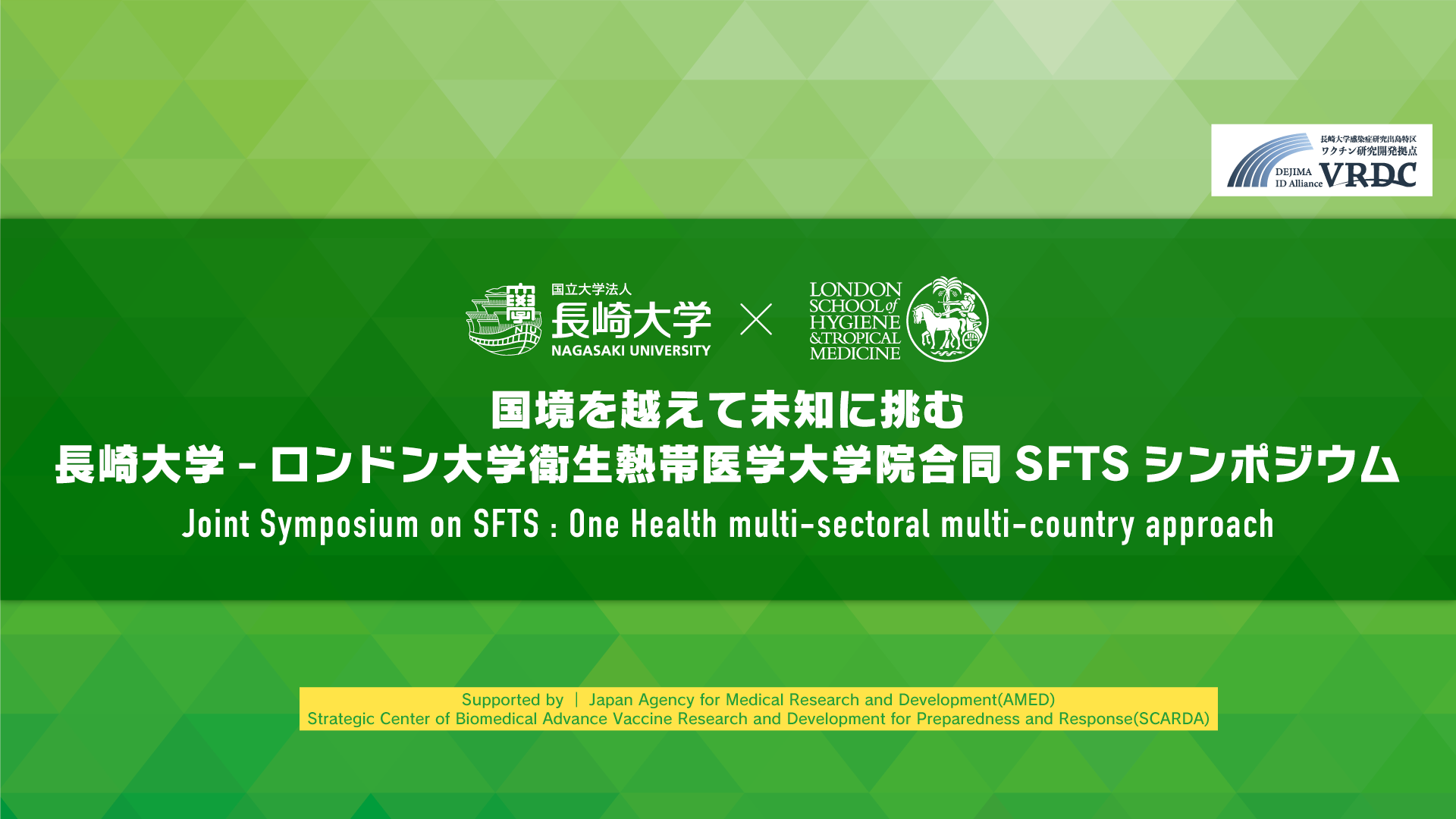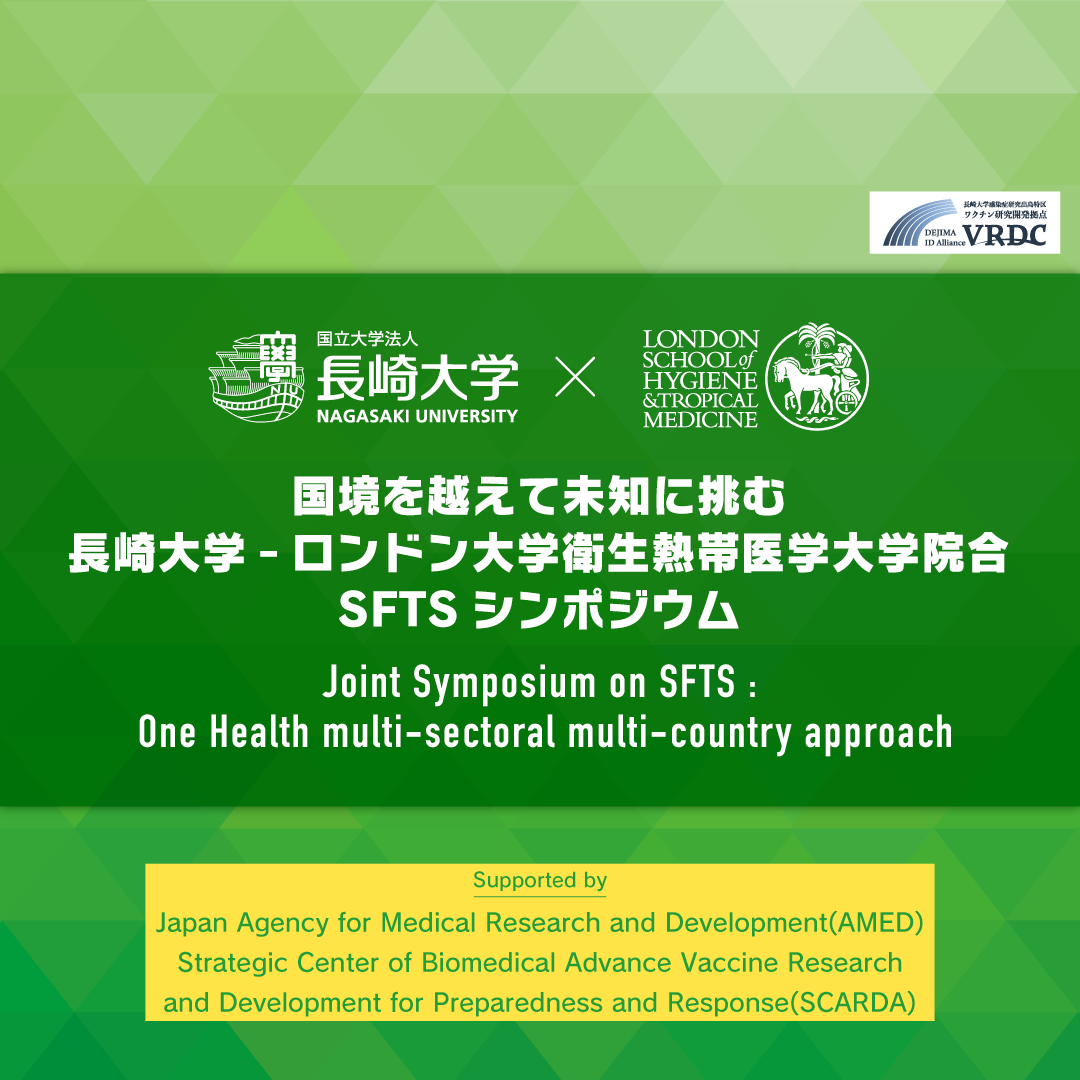

Event Overview
We are holding one of the first international symposium on SFTS (Severe Fever with Thrombocytopenia Syndrome), an emerging zoonosis which was newly reported in 2009. High mortalities of SFTS are reported in various East Asian countries including Japan, Korean and China, because etbalished treatment regimens are limited and accessible vaccine is unavailable. While it’s causative agent SFTS virus appears to be maintained between ticks and wildlfe, some of which act as a natural reservoir, the complete transmission cycle of SFTS in nature is poorly understood. Furthremore, recent studies highlight domestic and pet animals excrete SFTS virus, and it is an urgent task to identify the contribution of these animas to human infections.
Background
Nagasaki prefecture has one of the largest SFTS human cases every year. This symposium in Nagasaki gathers SFTS specialists in a wide range of areas including medical doctors, veterinarians, researchers developing medicine and vaccination, policy makers, and groups at hightened exposure risk in one place. Through working together across borders and sectors with One Health perspective, we aim to develop a road map to achieve better health of humans, animals, and environment.
The Department of Infectious Disease Epidemiology and Dynamics is a newly established researh group in Nagasaki University, focusing to develop strategies to control infectious disease through epidemiological studies and mathematical modelling. We organize this symposium in collaboration with by Nagasaki university (School of Tropical Medicine and Global Health, DEJIMA Infectious Disease Research Alliance) and London School of Hygiene and Tropical Medicine (LSHTM), as part of our research activities in Strategic Center of Biomedical Advance Vaccine Research and Development for Preparedness and Response (SCARDA).
Event Schedule and Registration
Joint Symposium on SFTS: One Health multi-sectoral multi-country approach
*All the sessions are held in English.
20 March 2025
Open Sessions・Free
| 8:30 – 9:00 | Registration |
|---|---|
| 9:00 – 9:15 | Welcome remarks |
| 9:15 – 10:45 | Session 1 – Overview and clinical features of SFTS in Japan and Korea |
| 11:10 – 12:45 | Session 2 – Evolution, virulence, and diagnosis of SFTS |
| 13:50 – 15:15 | Session 3 – Epidemiology and transmission of SFTS from One Health Perspective |
| 15:45 – 17:15 | Session 4 – Panel discussions – interdisciplinary and cross-border collaboration |
| 17:15 – 17:30 | Closing remarks |
| 17:30 – 20:00 | Networking reception |
The symposium registration closed at noon on Tuesday, March 18.
Symposium Program (to be updated)
Speakers
Opening remarks
- Kouichi Morita / Director, DEJIMA Infectious Disease Research Alliance (DIDA), Nagasaki University
Session 1 – Overview and clinical features of SFTS in Japan and Korea
Session 2 – Evolution, virulence, and diagnosis of SFTS
Session 3 – Epidemiology and transmission of SFTS from One Health Perspective
Session 4 – Panel discussions – interdisciplinary and cross-border collaboration
Closing remarks
- John Edmunds / Nagasaki University/LSHTM
short bio
Symposium venue
TMGH Seminar Room 1F
Sakamoto Campus, Nagasaki University
1-12-4 Sakamoto, Nagasaki City, Nagasaki Prefecture, JAPAN 852-8523